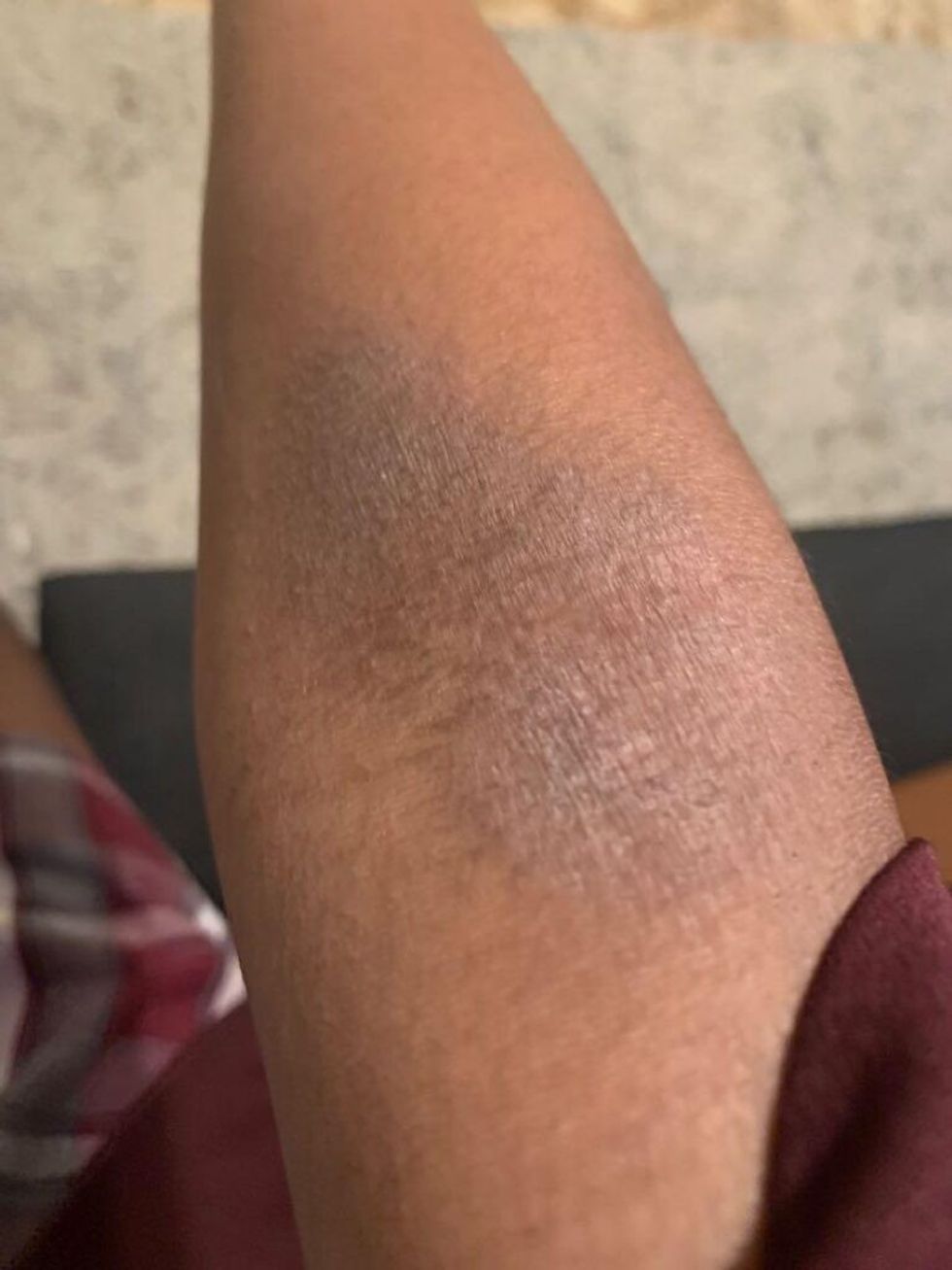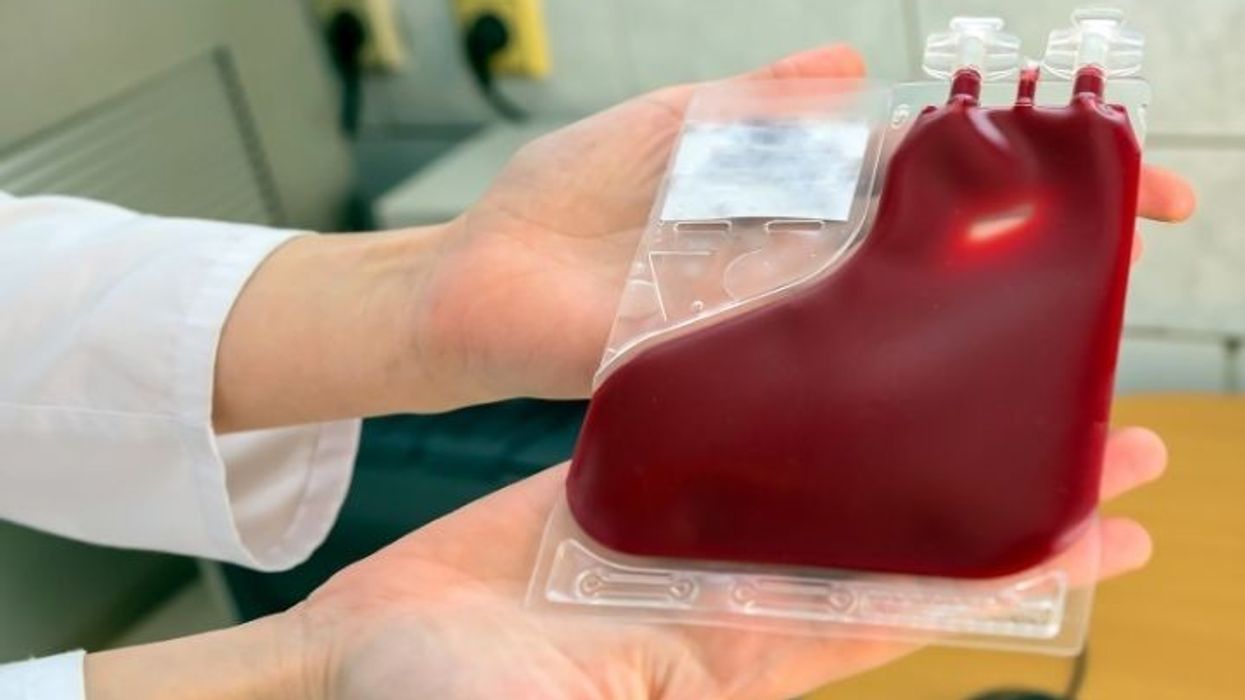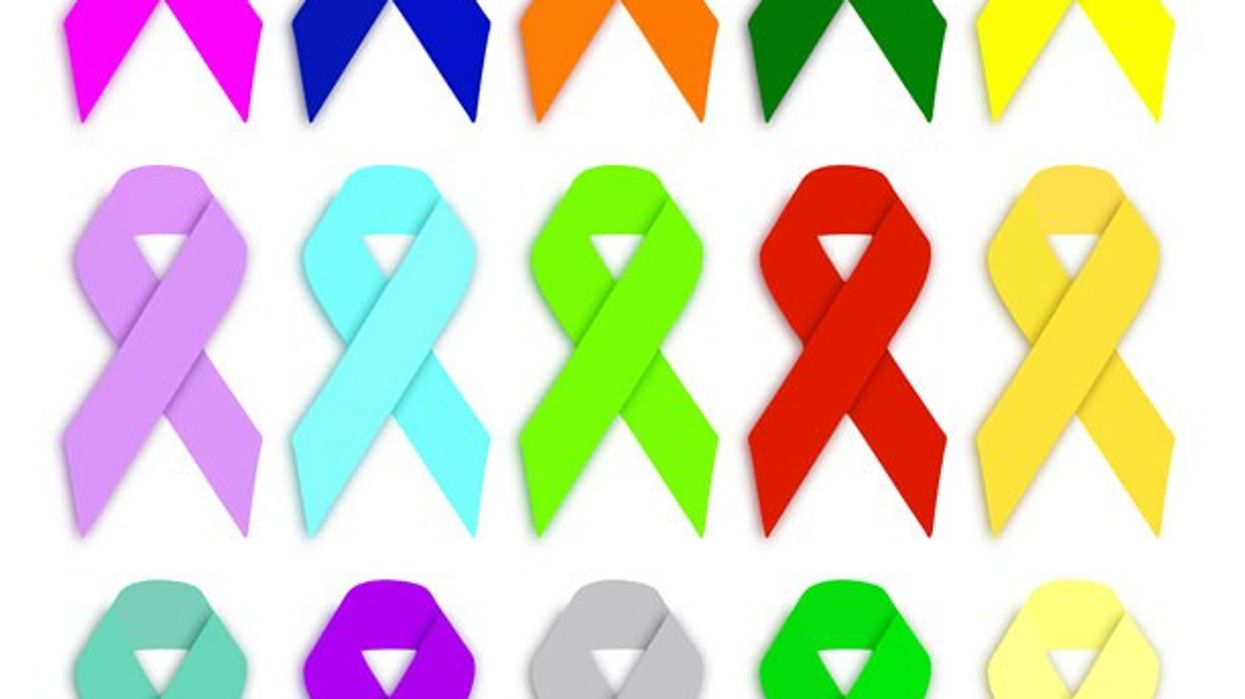During the month of October, people are boldly displaying pink and purple ribbons for Breast Cancer Awareness and Domestic Violence. Yet, many people will overlook the fact that this is also Eczema Awareness Month.
“Eczema is a chronic skin condition characterized by skin barrier dysfunction and localized immune dysfunction leading to inflammation and itching. It often leads to sensitive and irritated skin. Eczema can affect people of all races and ethnicities,” stated Dr. Camille Howard-Verovic, a New York-based board-certified dermatologist and Skin of Color Society member.
According to the National Eczema Association, more than 31 million people in the United States have eczema.
[SP1] Eczema is an umbrella term that describes several skin conditions including atopic dermatitis, contact dermatitis, dyshidrotic eczema, nummular eczema, stasis dermatitis, and seborrheic dermatitis.
- Atopic dermatitis: This is the most common form of eczema, which usually starts in childhood and often runs in families. It is linked to allergies and asthma, and affects the creases of the elbows, knees, neck, and face.
- Contact dermatitis: This type of eczema occurs when the skin comes into contact with an irritant or an allergen, such as latex, metal, soap, or poison ivy. It causes redness, swelling, itching, and blisters on the affected area.
- Dyshidrotic eczema: This type of eczema affects the hands and feet, causing small, fluid-filled blisters that can be very itchy and painful. It is more common in warm weather and in people who have allergies or sweaty palms.
- Neurodermatitis: This type of eczema causes thick, scaly patches of skin that are very itchy and can become infected. It usually affects the scalp, neck, arms, legs, or genitals. It is triggered by stress or by scratching the same spot repeatedly.
- Nummular eczema: This type of eczema causes round, coin-shaped lesions that can appear anywhere on the body. They are often dry, crusty, and itchy. They may be triggered by insect bites, dry skin, or infections.
- Seborrheic dermatitis: This type of eczema affects the scalp and face, causing oily, yellowish scales that can flake off. It can also affect the eyebrows, eyelids, ears, chest, and back. It is more common in infants and adults with oily skin or hormonal changes.
- Stasis dermatitis: This type of eczema affects the lower legs and ankles, causing swelling, discoloration, itching, and ulcers. It is caused by poor blood circulation in the veins, which can result from heart problems or varicose veins. (Source: Healthline.com)
“I started dealing with eczema when I was about 12 years old. I used to break out in little bumps which caused me to itch a lot. When my skin got really irritated, my mother would take me to the doctor,” said Jacqueline Johnson, who is the founder of Prayer in the City Ministry.
Although the doctor told Johnson that she would eventually grow out of having to deal with the skin disorder, at the age of 60 she is still coping with complications from eczema.
“In people of color, eczema can sometimes appear differently, with darker or lighter patches or discoloration that may persist after the inflammation is long gone. In addition, in the inflammation in deeper skin types, redness is not as apparent. This may lead to delays in diagnosis and treatment,” stated Howard-Verovic.
The American Academy of Dermatology (AAD) states that 90 percent of people with eczema experience this condition before age five.
Alexis Powell recalled her daughter Jaliyah Scott experienced signs of eczema when she was two months old.
“I first noticed as a baby that she was having dryness around her arms and legs. When I took her to the doctor, they prescribed a steroid cream, which seemed to help with the symptoms,” said Powell.
As Jaliyah got older, Powell noticed that her daughter’s skin started to dry up. However, she would still have flare-ups when using certain types of lotion that contained perfumes. She also noticed that extreme weather conditions would activate the skin condition.
Even though Powell did not have a family history of the skin disorder, her younger daughter Alivia also developed eczema when she was two years old.
According to AAD, 1 in 10 Americans has eczema, with the condition being more common in children of African and Asian descent.
Howard-Verovic said that parents of children with eczema should not feel helpless. She recommends that they follow several solutions to combating this skin disease in younger patients.
Specifically, she advises, “If a child has eczema, there are several things that parents can do to help manage the condition:
- Talk to a pediatrician and dermatologist about a care plan.
- Keep the child's skin well-moisturized and hydrated using fragrance-free creams or ointments.
- Avoid harsh soaps and detergents.
- Keep nails short to prevent scratching, dress the child in soft, breathable fabrics, and maintain a consistent bathing routine with lukewarm water.
- Minimize the use of rough “wash rags” especially during acute flares.”
After almost five decades of dealing with eczema, Johnson stated it has been trial and error in coping with the irritated skin condition.+
“I know that I need to keep my skin lubricated. I also know that I need to stay away from fragranced lotions because they will cause me to break out. Over time, you sort of learn what you can and cannot use on your skin,” stated Johnson.
Johnson admits that she is still in a discovery process in coping with eczema. After several skin tests, she has also begun to look at how her diet impacts her flare-ups.
“I love food and I am always going out to eat. However, I have learned to stay away from a lot of dairy products. Since I have not been drinking milk, I have been amazed at the difference it has made in my skin,” said Johnson.
Eczema Living [SP2] reports that hands and feet may be a prime target for eczema in winters or summers when the air is dry. The skin loses its moisture and becomes dry to cause skin inflammation.
Powell stated that she has noticed when her daughters are active in sports, their symptoms from eczema are milder.
“I don’t think that parents should be alarmed when their children have eczema. You just have to stay on top of it, because it heals over time. You just have to be diligent about finding the proper skin care regimen that will work for your child,” stated Powell.
Johnson, who leads a national prayer ministry, recommends prayer and meditation when dealing with eczema.
“I believe in spending quiet time to get divine wisdom and guidance regarding what you should do to gain discipline to follow the steps needed for your personal proper skin care. For years, I was not disciplined enough to do the things that I knew needed to done to keep from having setbacks from eczema,” stated Johnson.













 Dr. Jay Harness, MD, FACS, founder of Cancer Fitness, believes that when a woman begins exercising after breast cancer, it marks the start of her personal reconstruction journey.
Dr. Jay Harness, MD, FACS, founder of Cancer Fitness, believes that when a woman begins exercising after breast cancer, it marks the start of her personal reconstruction journey.






